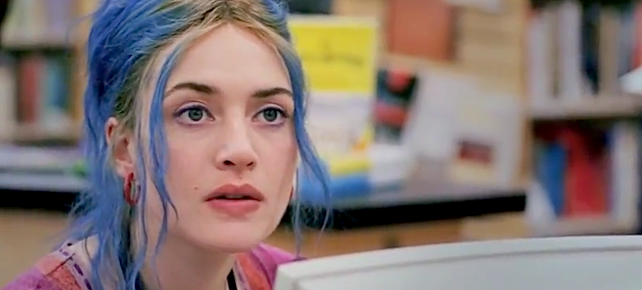
Whenever I hire my annual student intern, a part of my hiring process is a quick Google search. I’ll be working with this student for the next academic year or so, which is my excuse for scrutinizing the applicant’s web footprint for reasons to hire or not to hire. I’m told that nowadays blind dates operate the same way- a quick Google search is customary to make the date a little less blind. That internet search reveals the good, bad, and ugly: family photos and keg stand photos from college days, angry name calling on twitter and kind birthday wishes on Facebook. When it comes to the realm of “forgetfulness,” a good first date or a strong interview can sometimes overwhelm a digital first impression. Especially when you work at the top party school in America, a solid intern can also be a keg-stand champion in his or her free time.
 But what about more scandalous or nefarious hits on a google search? A European Court made waves last week by legally enshrining the “right to be forgotten” as an extension of privacy rights. The issue surrounded a Spanish man whose number one google search hit linked to a sixteen year old story involving bad debts and the auction of his repossessed house. News sources quote the Spanish man saying: “This is really old information, and it no longer reflects who I am.” The high court agreed with him. Within days of the decision, the BBC is reporting that others are officially requesting their information removed as well. A doctor wants negative reviews of his practice removed, an ex-politician wants old scandals removed from search results, and a pedophile (who has presumably served his time) wants the stories surrounding his conviction removed as well.
But what about more scandalous or nefarious hits on a google search? A European Court made waves last week by legally enshrining the “right to be forgotten” as an extension of privacy rights. The issue surrounded a Spanish man whose number one google search hit linked to a sixteen year old story involving bad debts and the auction of his repossessed house. News sources quote the Spanish man saying: “This is really old information, and it no longer reflects who I am.” The high court agreed with him. Within days of the decision, the BBC is reporting that others are officially requesting their information removed as well. A doctor wants negative reviews of his practice removed, an ex-politician wants old scandals removed from search results, and a pedophile (who has presumably served his time) wants the stories surrounding his conviction removed as well.
Without commenting on the political, judicial, or sociological consequences of the court ruling, I don’t think I’m wrong in suggesting that the internet has unintentionally extended the social consequences of failure. Says one lawyer in a CNN opinion piece:
Until recently, humans had comfort in knowing that mistakes were rarely forever. But the Internet has brought us a “mistakes are forever” society.
Now, even a financial hiccup 16 years ago remained as prominent for Gonzalez, as if it happened yesterday. Now, a revenge porn[the abusive act of publicly posting explicit pictures once shared privately as an act of spurned love] picture will remain on a victim’s Google results forever, victimizing the subject every day. Even deserved criticism, like an old criminal record, will remain forever — as if it happened yesterday. Time is no longer linear for us.
 In Hawthorne’s Scarlet Letter, protagonist adulterer Hester Prynne is saddled with a big red letter “A” to be worn on her chest at all times. The letter acts as a shaming reminder to the greater community to keep their sexuality in line. While Hawthorne goes on to make Hester a dignified example of the power of confession, top hits of Google searches aren’t unlike a big letter “a” for many whose mistakes just won’t go away. Identity is at the core of both stories– validating the hard work that went into our spring conference theme. Should a foreclosure 16 years ago be part of the plaintiff’s identity? Who gets to control the ever-important first impression- the politician on his rebound or the Google search? Don’t patients deserve to hear others’ opinion of a doctor’s practice? Again, I’ll leave that to the policy makers.
In Hawthorne’s Scarlet Letter, protagonist adulterer Hester Prynne is saddled with a big red letter “A” to be worn on her chest at all times. The letter acts as a shaming reminder to the greater community to keep their sexuality in line. While Hawthorne goes on to make Hester a dignified example of the power of confession, top hits of Google searches aren’t unlike a big letter “a” for many whose mistakes just won’t go away. Identity is at the core of both stories– validating the hard work that went into our spring conference theme. Should a foreclosure 16 years ago be part of the plaintiff’s identity? Who gets to control the ever-important first impression- the politician on his rebound or the Google search? Don’t patients deserve to hear others’ opinion of a doctor’s practice? Again, I’ll leave that to the policy makers.
What I can say, with some confidence, is that the shame, guilt, and anxiety that drove Adam and Eve to cover up with fig leaves are the same motivating fears driving the right-to-be-forgotten movement. Heck, I certainly don’t want my “Los Angeles labor rights activist” season of life to come up first on a Google search- but that has to do with the fear that my identity is not in my control, not with the truthfulness of my activist summer in LA. Can I invite you to visit my carefully curated fig-leaf enhanced Facebook page first to get a bit of context before I tell you about my secret activist side?
 At the same time, if the opportunity presented itself to have my less-than-stellar past erased from the omnipotence of Google, I’d fight tooth-and-nail to make that happen too. Truth be told, this is among the many reasons “all my eggs are in the basket” of the Christian gospel- there is a hope that an omnipotent God could exercise His own “right-to-forget” when it comes to the parts of my identity that are both true and embarrassing. As Hebrews records it: ““I will remember their sins and their lawless deeds no more.”
At the same time, if the opportunity presented itself to have my less-than-stellar past erased from the omnipotence of Google, I’d fight tooth-and-nail to make that happen too. Truth be told, this is among the many reasons “all my eggs are in the basket” of the Christian gospel- there is a hope that an omnipotent God could exercise His own “right-to-forget” when it comes to the parts of my identity that are both true and embarrassing. As Hebrews records it: ““I will remember their sins and their lawless deeds no more.”
Giles Fraser over at the Guardian also sees the link between the omnipotent internet, religiosity, and forgiveness, and his observations are interesting, if a tad optimistic. Fraser articulates that this digital omnipotence should lead to a generation of more understanding and forgiving humans:
Between the collapse of faith in God and the emergence of the internet, there was a brief historical window in which people in the west could comfortably think of themselves as having established real privacy from external scrutiny. When people believed in God, and believed that God knew everything and didn’t forget, then we needed forgiveness for past sins. That is, the past needed to be dealt with rather than denied and deleted.
The same is becoming true again. Luke’s gospel has it thus: “There is nothing hidden that will not come to light.” The spotless mind was always a fantasy of avoidance.
If the internet becomes a great leveler that exposes everyone’s failure, then eye-for-an-eye calls for justice could quickly become “let’s forgive and forget.” Theoretically anyway- the generation that grew up on the internet did also gave us trolling and cyber-bullying too. And it’s not as if human beings aren’t creative enough to discover new ways to feign righteousness, which I think is the more likely outcome than a more understanding society.
All that to say, the universal human struggle with its own personal history is on full display here in the tech world. Where ever there is law, there has to be absolution. Or- to quote .38 Special- the heart always needs a second chance.

COMMENTS
2 responses to “Divine Memory and The Right to Be Forgotten”
Leave a Reply













Bryan. Love this post. And, to be honest, something I had never really thought about until now.